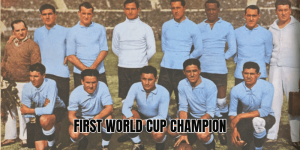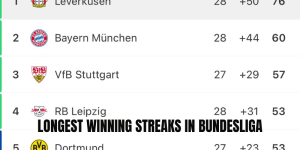The Portuguese Primeira Liga often flies under the radar in global football discourse, yet it has served as fertile ground for Spanish talent seeking a revival, a breakthrough, or a quiet career crescendo. In this article, AnnuGoal will accompany you through the most compelling Spanish players in Primeira Liga success stories — those who adapted, excelled, and left a mark in Portuguese soil. From legends like Iker Casillas to modern operators like Álex Grimaldo, we explore how Spaniards built legacy in Portugal.
Why Spain to Portugal works — cultural, tactical synergy
Before diving into individual names, it’s worth understanding why the Portugal–Spain corridor produces meaningful results far more often than meets the eye. For one, cultural and linguistic affinity help smooth the adaptation timeline. Spanish and Portuguese share Latin roots, making it easier for Spaniards — especially those from border regions — to communicate and integrate quickly. Local commentators have called this trend “a boa invasão espanhola” in the Primeira Liga.
Secondly, tactical philosophies in Iberian football share family traits: possession-based play, pressing, technical discipline. A Spanish player often feels tactically at home — just a slightly different dialect. clubs in Portugal also see Spaniards as undervalued assets: competitively mature, affordable, and with resale potential.
Finally, several departments in Portuguese clubs scan lower Spanish divisions (Primera RFEF, Segunda B) for talents that may be undervalued in Spain but able to shine in Portugal. This combination of context and opportunity is key to many Spanish players in Primeira Liga success stories.
Iker Casillas — the iconic keeper’s twilight conquest
No list of Spanish triumphs in Portugal starts without Iker Casillas. The former Real Madrid and Spain legend joined FC Porto in 2015, bringing stunning reputation but also serious expectations. In his time there, he not only played regularly — amassing over 100 league appearances — but lifted a Primeira Liga title in 2017–18 and a Supertaça. His signing lent gravitas and visibility to the Spanish-to-Portugal route.
Even as he aged, Casillas proved resilient and consistent, making his 1,000th professional appearance while at Porto. His status transcended pure performance — his leadership, experience in Europe, and aura brought intangible weight to Porto’s dressing room. In many respects, he became a blueprint for how a veteran Spaniard can recast his legacy in Portugal.
Álex Grimaldo — the modern standard-bearer
If Casillas was a headline grabber, Álex Grimaldo represents the sustained project. After arriving at Benfica in 2016, he became a fixture for years, helping the club to multiple league titles and domestic cups. He carved out status not just as a starter, but as one of the more consistent left wing-backs in the entire league. His attacking numbers, positional discipline, crosses, and defensive work made him a complete profile.
Grimaldo’s prime years in Portugal raised his stock — culminating in a move to Bayer Leverkusen in 2023. That progression demonstrates the pathway: excel in Primeira Liga, then ascend to bigger leagues — a pattern we see in several Spanish players in Primeira Liga success stories.
The wider club of Spanish winners
While Casillas and Grimaldo anchor the headline acts, there are more names worth acknowledging — less spotlighted but meaningful in shaping the narrative of Spanish success in Portugal.
- Javi García, a defensive midfielder/center back, won the Primeira Liga with Benfica in 2009–10 after a move from Real Madrid’s orbit. His solidity in midfield helped stabilize the side.
- Rodrigo (Rodrigo Moreno) also featured in Benfica’s title-winning squads and played in important European campaigns, adding offensive versatility to his Spanish-Portuguese résumé.
- Álex Grimaldo himself adds further depth by ranking among the most-capped Spanish players in Benfica’s history.
- -, only about eight Spaniards have ever won the Primeira Liga — including Casillas, Iván Marcano, Óliver Torres, Toñito, Toni Robaina, Javi García, Rodrigo, and Grimaldo.
Each of these names tells a slice of the story: Spaniards can adapt, contribute to titles, and become integral pieces — not just squad fillers.
Keys to success: adaptation, role, and opportunity
What differentiates those Spaniards who flourish from those who fade?, several recurring factors emerge:
- Clear role and trust. Casillas arrived as an unquestioned starter; Grimaldo was integrated as part of tactical plans. Clubs that treat Spaniards as strategic acquisitions, not backups, tend to succeed.
- Positional flexibility. Many successful Spaniards weren’t rigid. Grimaldo, for example, could link in attack or cover defensively; Javi García could shift between midfield and defense. That adaptability is gold in Portuguese contexts, where squads are leaner.
- Physical and mental resilience. The grind of the Primeira Liga — frequent travel, stadiums with passion, smaller squads — demands resilience. Spaniards who crack it often bring a toughness born from playing in Spain’s lower divisions or in pro exposure early.
- European exposure and big-match temperament. Several Spaniards in Portugal had already tasted continental competition — that experience helps when the pressure intensifies.
- Pathway for progression. Some view Portuguese clubs as stepping stones. But the best have used it as a stable base, either to re-launch or to remain in a competitive environment. That mindset shift — from transient to invested — separates sustained contributors from one-season names.
Challenges and near-misses
It’s not all fairy tales. For every successful Spaniard, there are dozens who struggled:
- Language nuance and locker-room dynamics can still cause friction, despite similarities between Spanish and Portuguese.
- Some arrive late in their careers with fading pace or motivation, limiting impact.
- Pressure is higher in Portugal’s “Big Three”. A Spanish player starting in mid-table can get space, but descending gradually into that pressure makes the climb harder.
- There have been flop cases, where preseason hype didn’t translate into matches; those failures, however, rarely make public retrospectives.
Still, the success-to-failure ratio may favor those Spaniards who align their ambition with Portugal’s competitive but accessible stage.
What to watch going forward
The 2023/24 and 2024/25 seasons saw growing Spanish representation in the Primeira Liga — clubs are more comfortable recruiting Spaniards from lower Spanish tiers (e.g. Primera RFEF) and banking on their tactical readiness. Analysts note names like Juan Bernal or Curro Sánchez as Spanish players with potential to become new success stories.
Also, Portuguese clubs are increasingly scouting Spanish youth levels, hoping to unearth undervalued talent before they break through elsewhere. In time, we may see Spaniards winning Young Player awards in Portugal or moving to La Liga after breakthrough seasons.
Conclusion
In this article, AnnuGoal has illuminated several distinctive Spanish players in Primeira Liga success stories — spanning iconic figures like Casillas to long-term contributors like Grimaldo, and a handful of others who captured titles and influence. Spain-to-Portugal moves aren’t mere curiosities; when handled with vision, they can yield trophies, career revivals, and impactful legacies.
If you loved this deep dive, don’t stop here: explore our profiles of Portuguese league seasons, Spanish expatriate success stories across Europe, and tactical breakdowns of Iberian football. Share this with fellow fans, bookmark it, and return whenever you want facts, stats, or narratives that blend the heart and numbers of the beautiful game.


